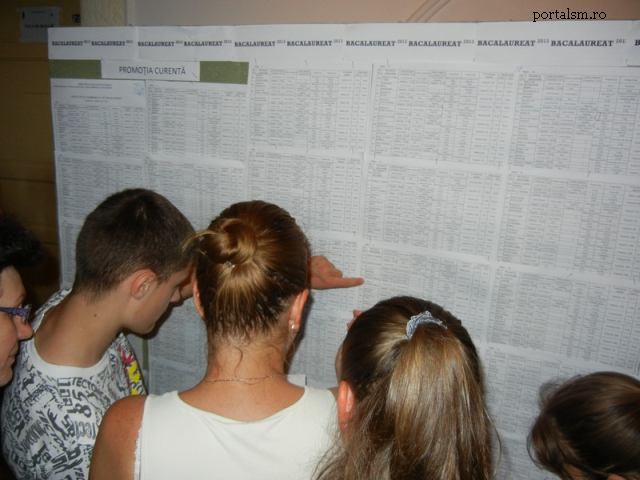The baccalaureate exam in Romania
Almost 67% of Romanias over 130,000 high school graduates have passed their baccalaureate exam.

Bogdan Matei, 13.07.2016, 13:39
Seen by commentators as a relevant indicator of the situation of the Romanian education system, the baccalaureate exam has been passed by 66.7% of those who have sat it, according to preliminary results made public by the education ministry. The final results will be published on Saturday, after all appeals are solved, but they are not expected to change this figure significantly. Looking at the map of results, we see major discrepancies between Romania’s counties. The best results come from Cluj, in the northwest, where 83.32% of high school students have passed the exam.
The lowest scores are recorded in the southern counties of Giurgiu, Teleorman and Ilfov. This year again, there are schools where all children have failed the exam, such as the Technological High School in Halanga, in Mehedinti county, in the southwest. In Bucharest, 68.5% of the pupils who took the exam have passed it, which is only 0.3% more than last year.
For the new education minister in Romania’s technocratic cabinet Mircea Dumitru, the results are less than satisfactory. Dumitru, who has just taken office, says he will launch a debate this autumn about the restructuring of the education system, in particular the high school education. In an interview to Radio Romania, he said changes would be made once all the players involved, including teachers, parents and children, reach a consensus.
Mircea Dumitru: “You cannot obtain good results in such a difficult exam as the baccalaureate unless you prepare for it systematically and over a long period of time. High schools and the Romanian education system in general have to change the way in which they work, teach and educate young people. We probably have to look at the bigger picture, hold a real debate, a national debate that would involve the schools, the teachers, the children, the decision-makers in the school inspectorates, the parents and the representatives of trade unions. What’s at stake here is the education of the country’s children and we have to reach a unified perspective of all those interested and involved in the education process.”
The minister’s plans, however, have been met with skepticism, given that, alongside with the healthcare sector, there hasn’t been another area in post-communist Romania to be the subject of so many failed experiments than the education sector. Whether members of a political party or independent, whether from the left or the right of the political spectrum, whether from inside or from outside the system, almost everybody who has held the office of education minister has tried to change the existing rules.
After all these changes, which have only generated confusion among teachers and children, former education minister and senator Liviu Pop has described the baccalaureate as an “eternal failure”.






























